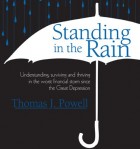 Residential Real Estate
Residential Real Estate
There are dozens of reasons why the residential real estate market bubbled and exploded, causing the ensuing credit crisis and economic strife. The popularity of loans requiring no documentation, the easy access to sub-prime loans and the Federal Reserve’s decision to keep interest rates low all intertwined to fuel the housing crisis. The housing bubble was also inflated by Wall Street’s ability to package and sell mortgages in large pools. Now, after struggling to repair the housing market for more than a year, we are seeing improvements that are unveiling extraordinary investment opportunities in residential real estate.
It appears we have hit the bottom of the housing market trough. Housing prices found some stabilization, although the prices are still close to the lowest they have been all decade. But, the collapse took years to build and expecting a complete turnaround in 2009 is unrealistic. The real promise in housing is in the future. Getting your money into the market now is optimal because of low prices and reasonable mortgage rates. Plus, there will continue to be tax relief with the recent Obama-endorsed home-buyers’ tax credit extension—which is planned to be available for repeat buyers who have lived in their prior residence for at least five years.
The United States should see a gradual increase in home sales throughout 2010, but the residential market will most likely not witness a return to “normalcy” until 2011. According to Steve Bergsman, author of “After the Fall, Opportunities and Strategies for Real Estate Investing in the Coming Decade,” “When a bubble market bursts, left behind is a lot of carnage and it takes about three years for the markets just to get a handle on the mess.”[1]
The three-year anniversary of the housing collapse is fast approaching and a number of high-profile reports have been published this month that suggest the residential housing market is already improving. The Case-Shiller index, which tracks variations in the values of houses in 20 U.S. metropolitan areas, showed an increase of 2.9 percent in the second quarter of 2009. In the first quarter it was down 7.9 percent. Two reports released by the Commerce Department last week suggest that while the overall economy continues on a wobbly path toward recovery, the housing industry is experiencing a number of positive signs. For example, “The supply of new homes was at 7.5 months in September, down from 9.5 months in May.”
While residential inventory appears to be slimming, foreclosure rates continue to mount in multiple areas across the country. With a significant number of Option ARMs set to reset over the next several months, many cities will continue to experience record-setting foreclosure levels.
However, foreclosures are increasing in different cities than those affected in the last quarters of 2008. Rates appear to be easing in the cities that were hit hardest by the housing collapse and rising in major metro areas in other states. This suggests that the cities previously overrun with foreclosures have found ways to combat the problem and are gradually making progress.
A continuing stream of foreclosures may keep the residential inventory plump, and prices could remain stable over the next couple quarters. But, as inventory shrinks, so too will the abundance of quality investment opportunities. With the residential real estate market now hovering around the bottom, now is the right time to invest.
Commercial Real Estate: No Reason to Panic
While it appears that we have already witnessed the worst of the residential real-estate collapse, we are preparing for the brunt of the crash in commercial real estate. The commercial real-estate industry has taken the place of residential real estate as the breeding ground for widespread fear. Daily reports suggest the commercial real estate storm will be more severe than the one that struck residential housing. Instead of causing another shipwreck, our economy’s commercial woes may prove to be more of an anchor that puts an imposing drag on our recovery.
The combination of job losses, store closings, rising vacancies and drastic cost-cutting measures puts commercial real estate in a serious bind. However, knowing their mortgages will soon come due or reset, owners and managers of office buildings, shopping centers, hotels and apartment complexes have had ample time to prepare for upcoming obstacles.
Owners of commercial real estate are not backed into a corner. Banks prefer options that keep mortgage payments flowing. Therefore, banks are willing to work with borrowers to find solutions, even though bundled commercial mortgages will add to the difficulty of negotiations. Securing loan payments is not entirely the responsibility of banks or those who hold investments in pools of bundled loans. The owners of commercial buildings originally took on the responsibility and many of them are actively working to find solutions to keep their properties operating. Many property owners will continue to make their payments either because they have adapted their strategies to fit the difficult times, or because they have explored creative ways to bring in extra income. Of course, some number of defaults will be inevitable. Some of those property owners who are unable to acquire loan restructuring or extensions will view a loan default as their best option.
As with the residential real estate debacle, the government is sure to intervene in an attempt to keep our economy from falling into another dark hole. For example, the already-in-place Term Asset-Backed Securities Loan Facility (TALF) supports the issuance of asset-backed securities in order to help small businesses meet their credit needs. The TALF is one of a handful of sluggish government efforts that was created to help provide a crutch for the commercial real-estate industry.
Commercial real estate will continue to tug on recovery efforts, but it is not likely to cause the amount of damage we witnessed during the residential collapse. The time to invest is not when everyone shows interest in an asset. A staple to wise investing has always been buying low and selling high. The commercial real estate market has produced sound investments in the past and will once again flourish. Getting into the market in times of success is more costly, the opportunities are scarcer and the rewards are not as fruitful. The best time to invest is when the masses are fearful, and the masses are easily spooked by commercial real estate right now.
The Benefits of Hiring Professionals
As is the case when taking on any money-making venture, the waters are difficult to navigate alone. We all want to make investments that are conducive to both our current financial situation and our future goals. Investing with a Registered Investment Advisor (RIA) helps eliminate the series of headaches that come with making sound investment decisions.
Hiring a RIA has a number of benefits. For instance, a RIA can take on the following responsibilities:
- Provide objective investment and financial advice
- Set achievable financial and personal goals
- Take into account all of the factors that influence your current financial situation (your assets, liabilities, income, insurance, taxes, etc.) and provide a comprehensive analysis of where improvements can be made. Also, this helps to guide your investment plans and retirement goals
- Provide consistent investment consultation based on your fluctuating savings, investment selections and asset allocation
Before hiring a RIA, you should also be able to answer the following questions:
- What services do you need? Can your potential RIA deliver these services or are there any limitations on what they can deliver?
- What experience does the RIA have in dealing with investors in your situation?
- Has the RIA ever been disciplined by a government regulator for unethical behavior?
- What services are you paying for and how much do those services cost?
- How does the RIA plan on getting paid and are you comfortable with this payment method?
- RIAs are required to register with either the SEC or their state securities agency, depending on their size. It is imperative to ask for proof of their registration
There are a number of professionals who can provide guidance for your investment strategies. Hiring a RIA can help to take the frustration out of the investment process and help you avoid many of the common roadblocks. The true value of a RIA is their ability to thoroughly understand your overall financial goals and provide professional investment advice that is consistent with those goals.
All My Best,
Thomas J. Powell
[1] Bergsman, Steve. After the Fall: Opportunities and Strategies for Real Estate Investing in the Coming Decade. Wiley, 2009.







